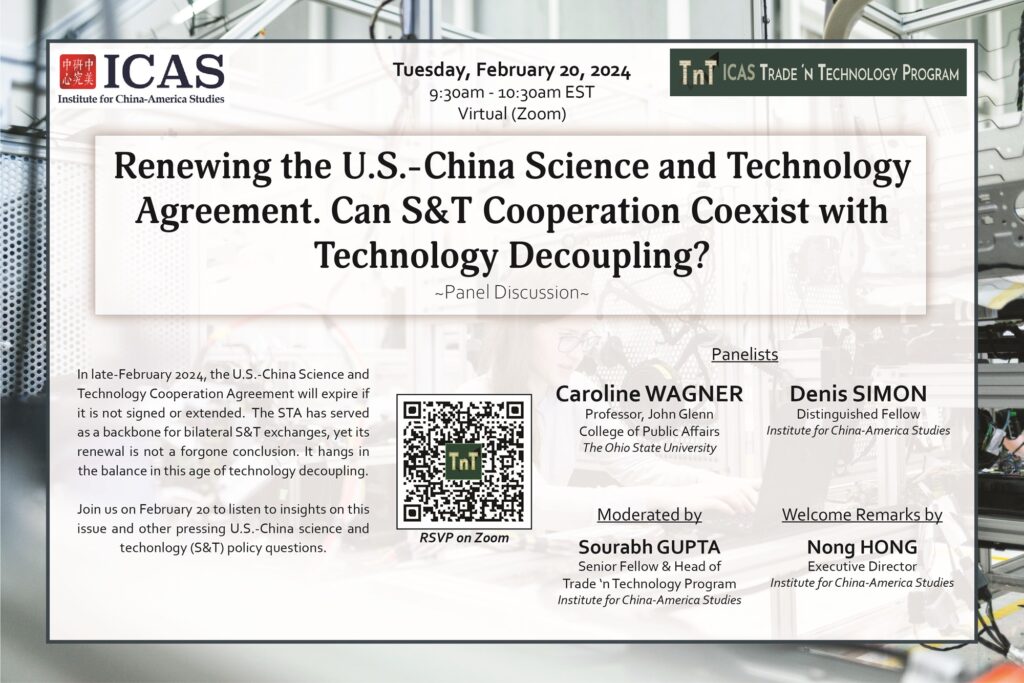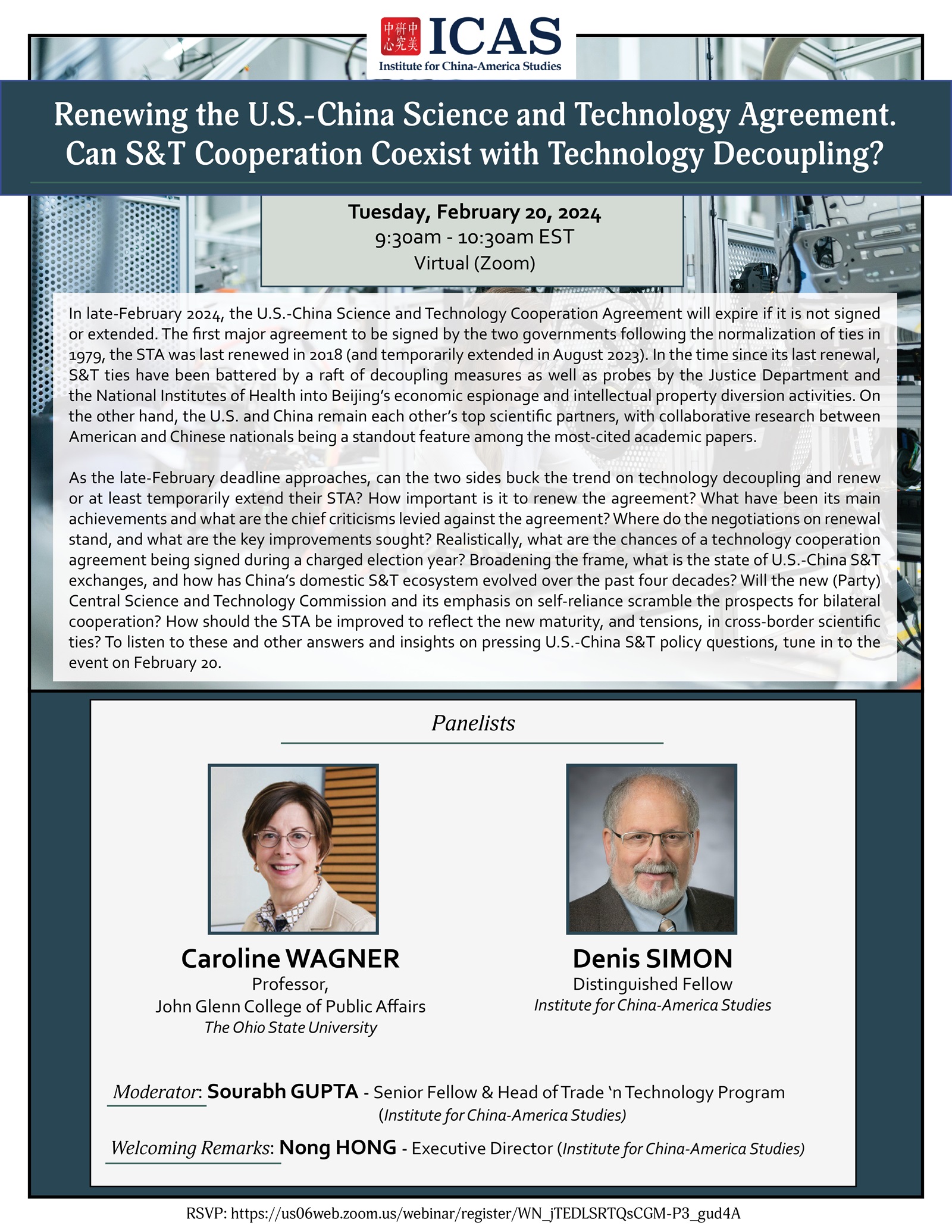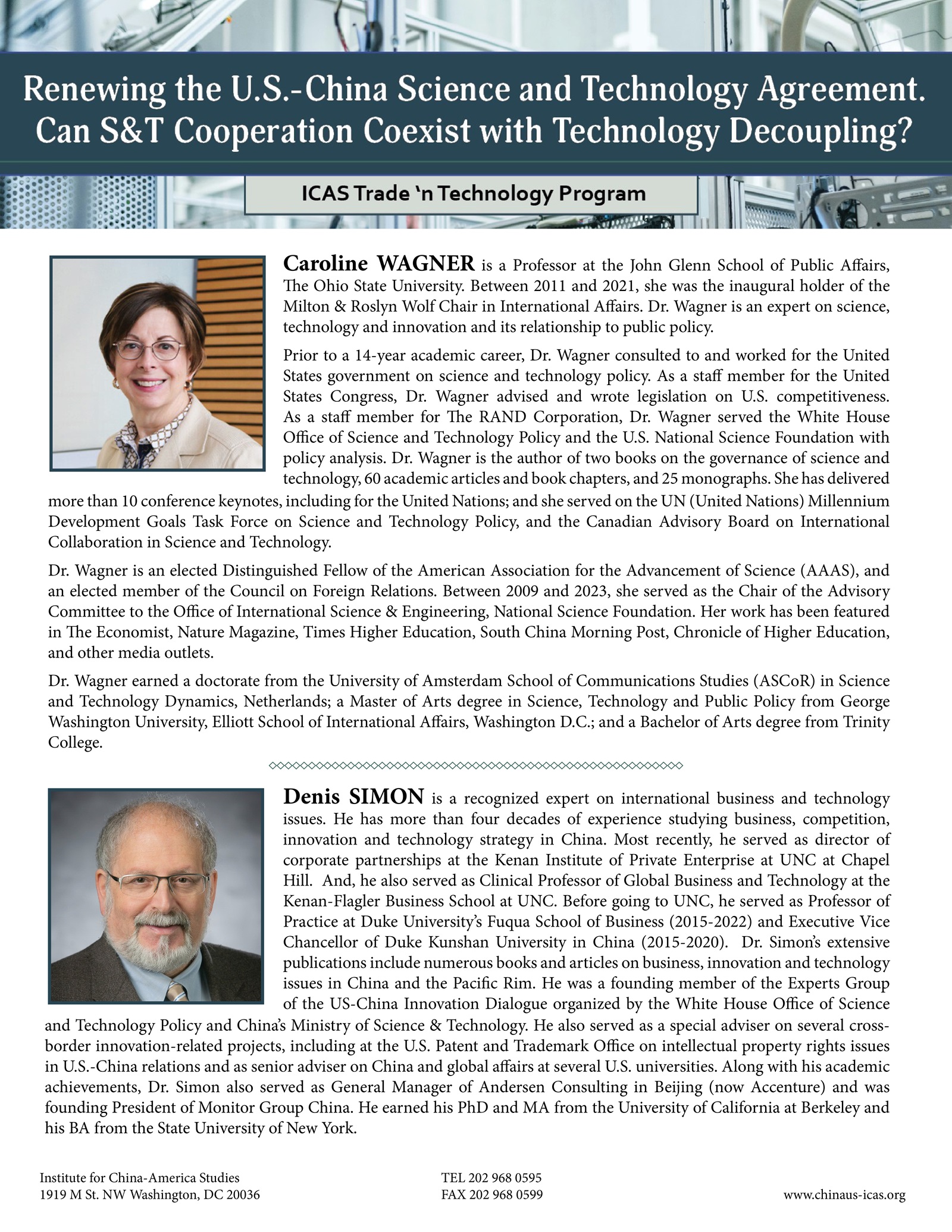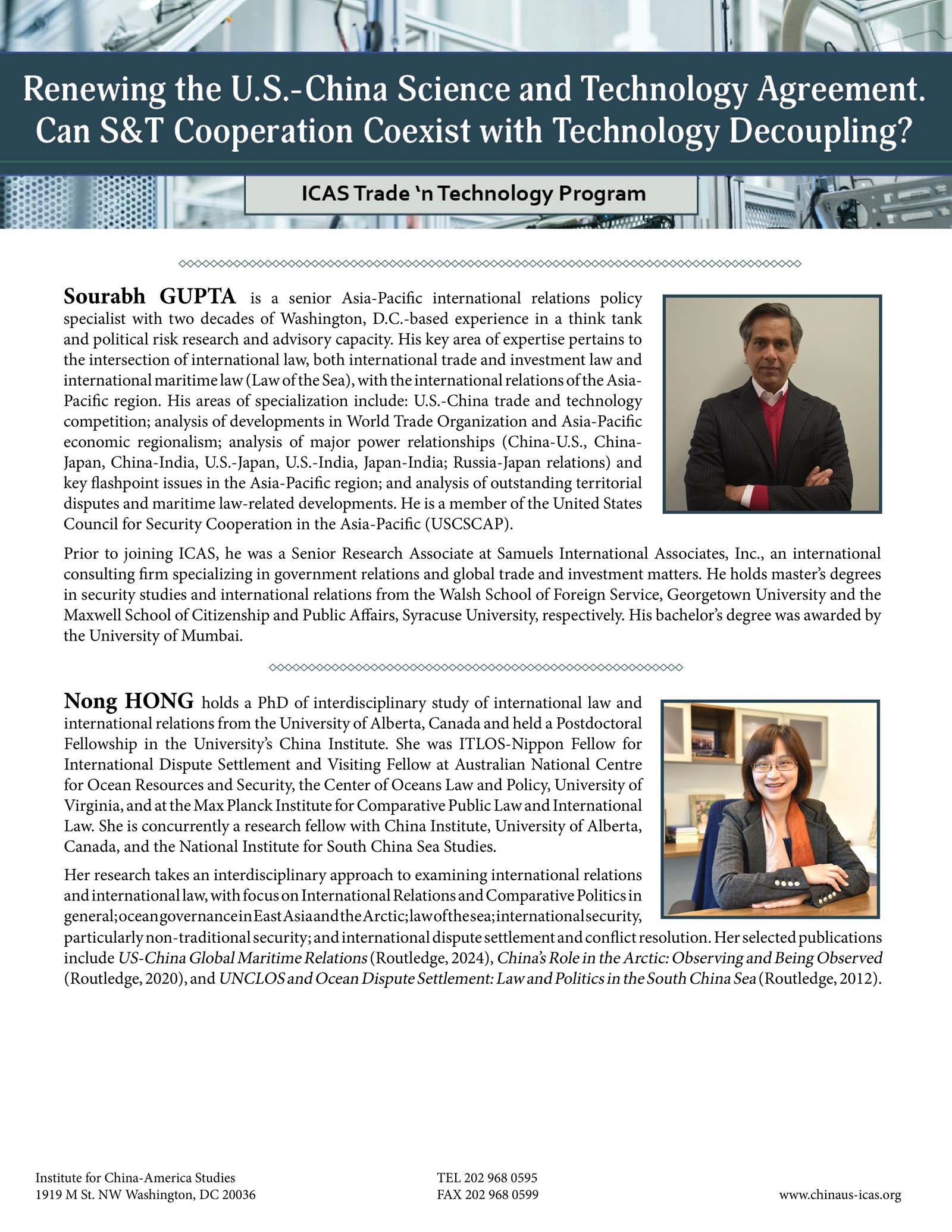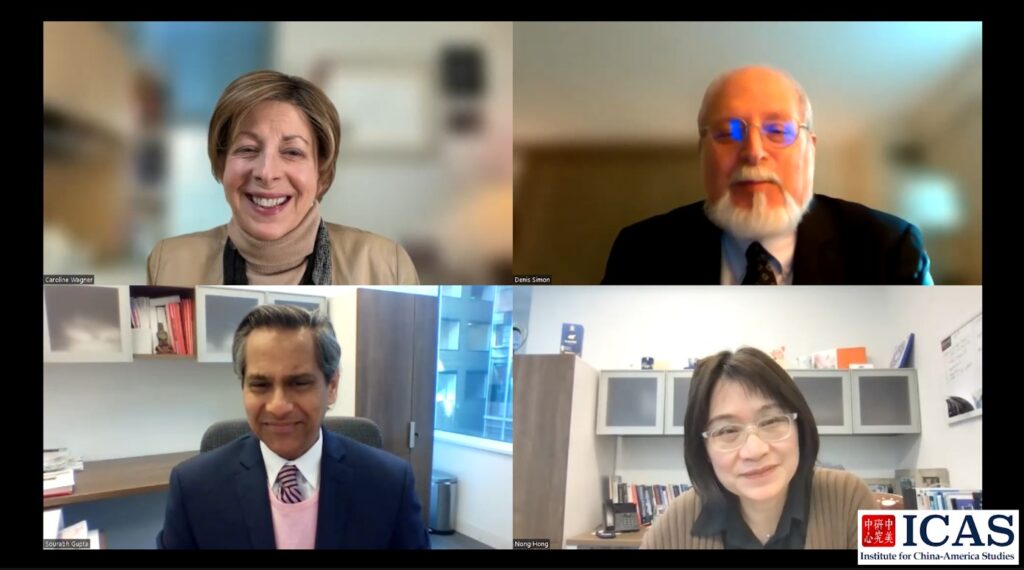
POST-EVENT SUMMARY
On February 20, 2024, the Institute for China-America Studies (ICAS) hosted a virtual public event to discuss the U.S.-China Science and Technology Agreement (STA), in the context of the ongoing negotiations to renew that agreement. The event was titled “Renewing the U.S.-China Science and Technology Agreement. Can S&T Cooperation Coexist with Technology Decoupling?” and featured two panelists: Dr. Caroline Wagner, Professor at the John Glenn School of Public Affairs at Ohio State University and Dr. Denis Simon, a Distinguished Fellow at the Institute for China-America Studies and a recognized expert on international business and technology issues. The panelists were introduced by Dr. Hong Nong, Executive Director of ICAS, and the event was moderated by Mr. Sourabh Gupta, Head of ICAS’ Trade n’ Technology Program.
The panelists were of the same view that science and technology has always blossomed from the exchange of ideas, the free flow of information and the power of cross-border collaboration, and scientific communities in both the U.S. and China would much prefer that the STA be renewed – and renewed at an earlier rather than later date. The agreement is important symbolically and gives confidence to researchers on both sides to deepen their engagement with counterparts. In the event of the agreement’s non-renewal (the STA will need to be renewed or extended by Feb. 27), the mutual confidence that sustains and underpins collaboration is bound to suffer. That being said, U.S.-China S&T cooperation has grown in leaps and bounds over the past few decades and their interactions are highly organic and robust today. As such, it is a matter of conjecture as to the degree to which collaboration and exchanges will suffer if the STA is not renewed – although non-renewal will, no doubt, be a diplomatic and political shock to the relationship. U.S. and Chinese researchers are, after all, each other’s No. 1 partner in producing scientific research and feature consistently among the most cited papers across fields.
Be that as it may, Washington and Beijing have their work cut out with regard to negotiating an improved STA – both, at a political and policy level. From a political standpoint, gone is the hierarchy, the asymmetry and the lack of parity that was the key feature of bilateral S&T cooperation of the earlier days. China is a near-peer across a range of S&T fields today, and it is this fear of seeding Chinese capabilities in frontier technological areas that is making the negotiations on renewal a heavy political lift in Washington. On the other hand, a renewed S&T agreement can also provide greater visibility into S&T developments in China, especially at a time when the Party leadership is determined to embark on establishing a more self-reliant S&T ecosystem. From a policy and technical standpoint, there are a number of legitimate concerns that are bedeviling the negotiations. These include the personal safety of scientists who travel to China; their ability to access, share and carry data across China’s borders in this day and age of stringent data security rules; and concerns about a possible lack of reciprocity, transparency and a level playing field in terms of access for American scientists in China. The Chinese side has its own interests and concerns too – not least among them being the poaching of its scientists by the U.S. side. A dispute settlement framework also needs to be worked out.
Overall, the panelists concurred that both governments could do a better job at treating each other’s scientists and researchers more considerately. The scientific communities on both sides of the Pacific cherish the value of collaboration and are independent-minded and forward looking in their engagement of the other; their governments should display the same integrity and proclivity too. The U.S. side could do a better job at screening S&T-linked visa applicants – although it bears noting that the anecdotal episodes of harassment reported are in fact the rare exception rather than the norm. For its part, the less inscrutable China’s system is in the S&T area or for that matter in other endeavors, the more confidence it will instill in counterparts to engage Chinese researchers without fear of repercussion. Besides, as a chief beneficiary of the open system of international S&T cooperation, China bears an obligation to strike a more judicious balance between global engagement with the U.S. and others and its efforts to build self-reliance. Since 2020, China’s cross-border collaborations are trending in the wrong direction – having dropped, in fact.
At this time, while there are differing views in the U.S. on revising and renewing the STA and Congress has certainly spoken up and expressed its concerns, the expectation is that these concerns can be accommodated. And the hope is that the two sides will indeed come to an agreement in time and formally renew on paper what is, by most accounts, an important S&T relationship that benefits both sides.

